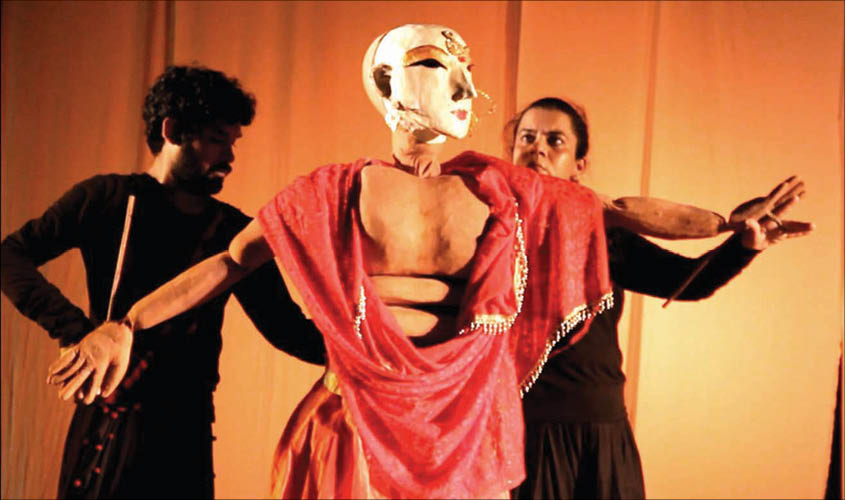‘You will not just leave me and go, will you?’ Without a moment’s hesitation, Parvati replied, ‘Well, it is kal yug (the dark age)…anything can happen.’
While others names are still changed, here, the I, Me, Mine are the real first person. The “I” also represents the quintessential “ahankaar” or Ego, the over-arching concept in the teachings of Krishna in the Mahabharat’s Bhagavad Gita. As my story unravels, it is also the sociological (albeit personal) context for the famed elephantine poverty alleviation paradigm. One that seems to make the Sustainable Development Goals out of the grasp of the achievable. The claims made by the privileged, like me, are meaningless.
Even as I write, scenes from David Lean’s Dr. Zhivago are on a replay. Set amidst the rumblings of the Russian Revolution after World War 1. Cataclysmic changes…the Moscow house turned into tenements, communal living for the less privileged.
I belong to a household where hospitality is the norm. It is said that even when an enemy comes to the doorstep, s/he should first be graciously offered a glass of water. In my upbringing, Dad, a Buddhist in thought, taught me that “servants” or “employees” should never be treated as such—but as human beings.
Over decades, that last became a tough life lesson. For the simple reason that when you treat another as a human being, emotions build up with it. So does attachment, affection, even love. To the degree that you cannot imagine “betrayal”. It is time to accept times have changed.
Story 1. I needed a cook. A young boy, Bhuvan, was brought by his uncle, Lila. Lila brandished him with a “See, I have brought you the perfect fit.” The background: Bhuvan had been working in the “infamous” Mumbai, had come home for a visit and the family was desperately trying to make sure he doesn’t go back to the “sinful” city.
It so happened, it was a very busy day for me. I quickly worked with him on the preparations for lunch, so it could be almost immediately ready to serve on return. He kept telling me how many calls he was receiving to return to Mumbai quickly.
Meanwhile, I asked him to have his breakfast as he wished and left. The return home was delayed rather more than expected, so was lunch. We did eat a lovely meal, so did Bhuvan, who had eaten breakfast, unlike me.
Later in the evening, Bhuvan said he would go to his uncle’s house to bring his bag and return. He never did.
A few days later and for several weeks then on, I kept hearing how uncle Lila was telling all and sundry in the village that “Madam to bhookaa rakhti hai (Ma’am keeps her staff hungry)”. The shock of it made me mad and I still rant about what I consider an unfounded allegation. Of course, Lila’s perception was his entitlement.
Story 2: A strong, beautiful, smiling, laughing, full-of-beans, fearless woman, Parvati, came into my home in an emergency situation. And stayed for several years…seven, eight, nine? I have lost track.
Her fearlessness was a trait that I admired the most. She never hesitated from stating her point of view bluntly, often loudly and certainly with open disdain when she deemed it necessary. It could be about elected representatives of the village/district, the system, people around, even me, my family members and friends/guests.
Never my husband—patriarchy rules, I guess. He was indulgent and treated her like a daughter. Any special dish he cooked had to be first served to her. For my bit, any specialty, after eating, I would make sure to make as many rounds on the pan and serve it hot from the fire to her plate. Me standing, she seated. All in all, from my perspective, she was well looked after, cared for, etc. etc.
My perspective. And then hers. Over the years, she always referred to her work at our place as “duty”. Anything that she considered was not part of that duty would be done but meet with clearly displayed disapproving behaviour. I learnt to skirt around it and cope. She was an excellent worker, honest and generally a bubbly, chatty “human being” to have around.
So, I trained my brain to argue every time a difficult situation arose. The arguments ran from: she is a young widow, she has to marry off her kids, she has no other financial support, she is uneducated (illiterate, actually), she has her right to self-respect, everyone can make mistakes/fall short (human being factor) and so on.
Right through, for some reason, I never forgot one thing. She often told me about how her pattern has been to last about seven years at one place. She had a favourite story she loved to regale with arrogance, when she left one such place of work. The lady of the house recalled to her about all the lovely clothes she had brought for her from “Delhi”. The next day, Parvati took all those she still had and threw it over the lady’s compound wall with a “Here you are, keep your clothes to yourself.”
Then comes the end with me. I am down with typhoid, weak and already beset with mental health issues after the demise of my husband. Just before the big altercation, we even had a long, general conversation about life. It ended with: “You will not just leave me and go, will you?” Without a moment’s hesitation, Parvati replied, “Well, it is ‘kal yug’ (the dark age)…anything can happen.”
To be continued.
Neelima Mathur is an India-based Executive Producer, Researcher, Writer, Mentor and Trainer for documentary and NGO films. She is also Festival Director of the Lakeside Doc Festival.

